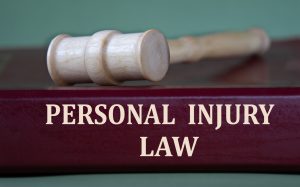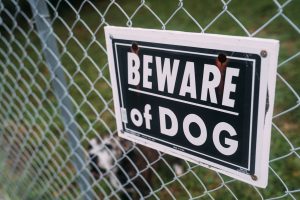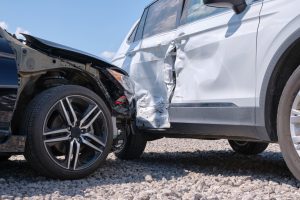After a collision, individuals typically face an inundation of questions and concerns—how can they substantiate their case, and what actions should they take to hold the responsible party accountable? These pressing questions weigh heavily on individuals during these challenging times.
This article serves as your practical guide, offering insights into the process and protecting your rights. Even amid challenges, it's a journey towards empowerment, providing you with the tools to understand the legal nuances and advocate for justice.
Understanding Car Accident Injury Cases
If you have been injured in a car accident, understanding car accident injury cases is essential. These legal proceedings revolve around two key elements: liability and damages.
- Determining liability -The first crucial step in a car accident injury case involves establishing fault for the accident. Precise determination depends significantly on evidence, including witness statements, police reports, and occasionally expert opinions. It's crucial to comprehend that liability can be shared or assigned to a single party.
- Identifying damages - After establishing liability, the attention shifts to injuries, including various losses from the accident. These losses may involve medical expenses, property damage, lost wages, pain, and suffering.
Grasping the foundational aspects of car accident injury cases is crucial if you've experienced such an incident. Now, it's time to dive into expert advice from an experienced car accident lawyer to guide you through this intricate journey of securing the compensation you deserve.
After a car accident, swift action is essential. This proactive step serves two critical purposes:
- Preserving vital evidence - Authorities play a crucial role in safeguarding essential evidence, including skid marks and debris, which can prove pivotal in your case.
- Ensuring legal compliance - Reporting the accident to the police is often a legal requirement, especially for accidents involving injuries or significant damage.
Contacting the authorities protects your rights and effectively lays the foundation for pursuing compensation in your car accident injury case.
Immediate medical care is vital. Hidden injuries like whiplash or internal trauma may not display primary symptoms. Swift medical evaluation uncovers these concealed injuries, enabling timely treatment and preventing potential complications.
Prompt treatment significantly enhances the prospects of a full recovery. Delaying medical care can exacerbate injuries and prolong the healing process. Additionally, knowing the extent of your injuries and receiving appropriate treatment alleviates stress during recovery, allowing you to concentrate on your well-being.
File A Police Report
Filing a police report immediately after a car accident is essential. It is an official record, meticulously documenting key details such as the date, time, location, involved parties, and an initial liability assessment. This factual record is indispensable for building a solid case.
Law enforcement officers play a pivotal role by conducting investigations, gathering crucial evidence, and collecting witness statements. Their efforts are instrumental in establishing fault for the accident. Noting this step is imperative, as insurance companies often require a copy of the police report during the claims process. This report provides them with a reliable account of the accident, facilitating the determination of liability and coverage.
Submitting a police report is a legally compliant step that provides essential documentation. Its impact on your case is substantial, significantly influencing the outcome and protecting your rights and interests.
In the digital age, valuable evidence often lies in surveillance camera footage or dashcam recordings, making them indispensable for your car accident injury case. Surveillance cameras offer an impartial account of the accident, capturing events objectively to corroborate your statement. Furthermore, this footage serves as concrete evidence of liability, revealing critical details such as right of way, adherence to traffic signals, and any reckless behavior by the involved parties.
Dashcam recordings are equally invaluable, providing a comprehensive view of events leading up to, during, and after the accident. However, prompt preservation is crucial because surveillance footage can overwrite, and failing to save dashcam recordings promptly may result in their loss. By obtaining and preserving this evidence following legal procedures, you ensure its admissibility in court, ultimately fortifying your car accident injury case with impartial and compelling evidence of liability and reinforcing your compensation claim.
Obtain Witness Testimonies
Eyewitness testimonies are invaluable in building a robust car accident injury case. Witnesses provide impartial and objective accounts of the incident, adding credibility to your version of events. Their statements can corroborate your claims and help establish liability, especially when multiple witnesses offer consistent accounts.
Collecting witness testimonies swiftly is essential as memories can fade over time. Be sure to gather their contact information for future reference.
These statements carry legal significance and can serve as crucial evidence in your car accident injury case.
File Medical Reports, Bills, and Doctor’s Notes
Documenting your medical journey following a car accident is essential. Medical reports detail your injuries, while bills and doctor's notes show your treatment and associated costs. This evidence supports your compensation claim and holds legal significance.
To strengthen your car accident injury case, diligently file and organize your medical documentation. This proactive step helps substantiate your injuries, treatment, and costs, ensuring a smoother process when pursuing compensation.
Document Ongoing Treatment And Rehabilitation
Continuing your post-accident treatment and rehabilitation is crucial. Maintaining records of your appointments and therapy sessions demonstrates your commitment to recovery. These records indicate your progress and the associated costs, strengthening your case.
Conclusion
Following a car accident, your actions speak volumes, reflecting your determination to seek justice and the compensation you rightfully deserve. Your journey is a testament to your resilience, from preserving vital evidence to documenting the path to recovery. As you navigate this process, remember that pursuing physical well-being and legal restitution is a declaration of strength. Consider consulting with a qualified attorney to ensure your rights are protected and your story finds the justice it deserves.





















